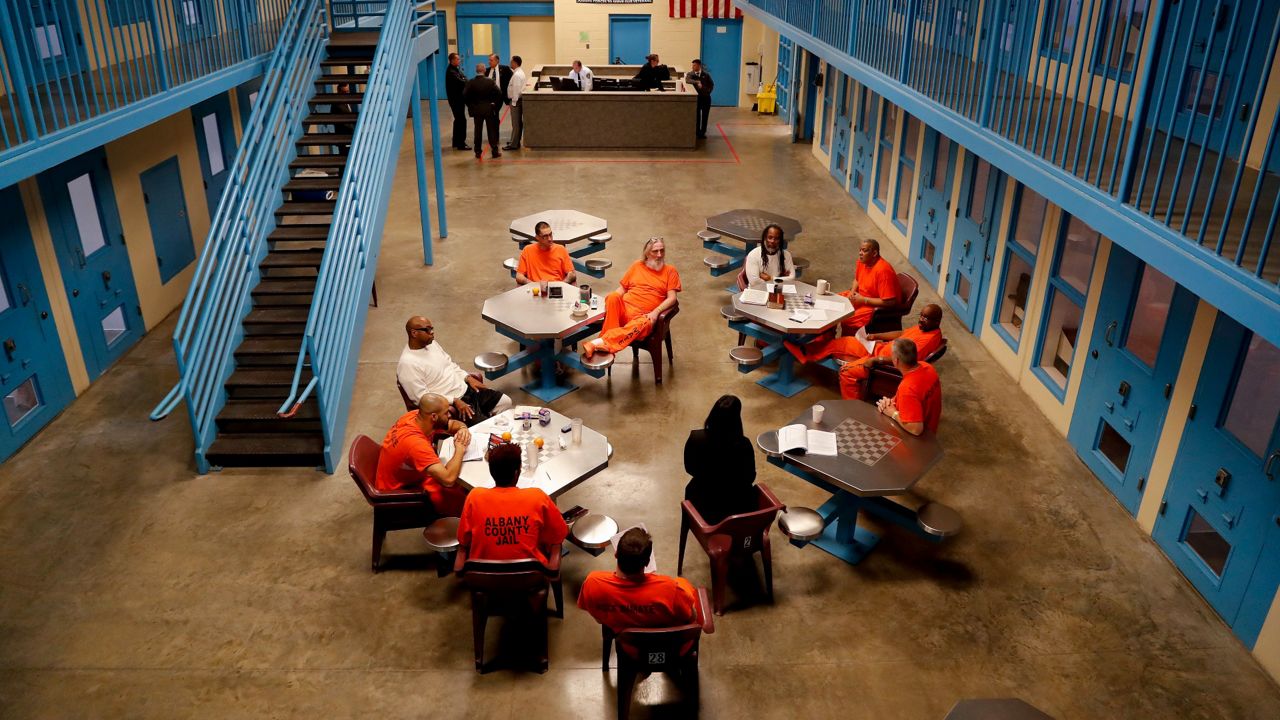Changing New York's bail law to end the "least restrictive" standard for serious charges and repeat offenders would offer judges a clearer idea of how to follow the measure, Gov. Kathy Hochul on Wednesday said.
Hochul also indicated she plans to include the bail law change in her state budget proposal, a move that will likely be opposed by Democratic leaders in the Legislature, who have sought to limit policy discussions in the spending negotiations.
The governor in the Bronx a day after her State of the State address defended her proposal to change the state's law that has ended cash bail requirements for many criminal charges, a measure that has become a political lightning rod in New York.
At the same time, Hochul said the intent of the initial intent of the law -- addressing inequities in the criminal justice system.
"I standby the fundamental premise of what they did. No one should be in jail or be home based on how large their bank account," she said. "That should never be the factor."
But Hochul believes a conflict in the law needs to be addressed: Whether to apply a "least restrictive" standard when determining bail, alongside additional factors.
"Right now judges have an inconsistency in the law," she said. "I'm saying let's just give them clarity. Certainly least restrictive means would make sense for first offenders, low-level cases. We don't want people like that sitting in Rikers."
Hochul has not outlined what serious charges would be covered under the change. But she indicated "repeat offenders" would likely be included in the proposal. New York City Mayor Eric Adams, a Hochul ally, has called for state officials to address recidivism.
"A judge should be able to look at that history, based on that," she said on Wednesday.
Hochul last year was able to win some changes to the state's bail law by expanding the charges in which bail could be considered. Nevertheless, the law continued to be an issue raised by Republicans on the campaign trail; Hochul won a full term last November during a campaign season that focused heavily on voters' concerns surrounding crime.
Hochul signaled she will include that changes in her budget proposal due to be released in the coming days. Democratic leaders in the state Legislature have defended the bail law and have on procedural grounds been opposed to including non-fiscal policy issues in the budget.
Governors typically have far more leverage in the budget process and the negotiations.
"We're going to be doing it in the context of this budget, so budget negotiations are all about those kind of conversations," she said.
Progressive advocates have opposed changes to the law, however, arguing Hochul's plan would not make people any safer.
"While the governor has stated she does not aim to make changes to bail that increase incarceration, history has repeatedly shown that expanding opportunities for judges to use incarceration does in fact lead to more incarceration," said Alana Sivin, a researcher with the group FWD.us.
Democratic lawmakers have acknowledged voters are worried about crime and have called for provisions to address what they call root causes like mental health and education.
